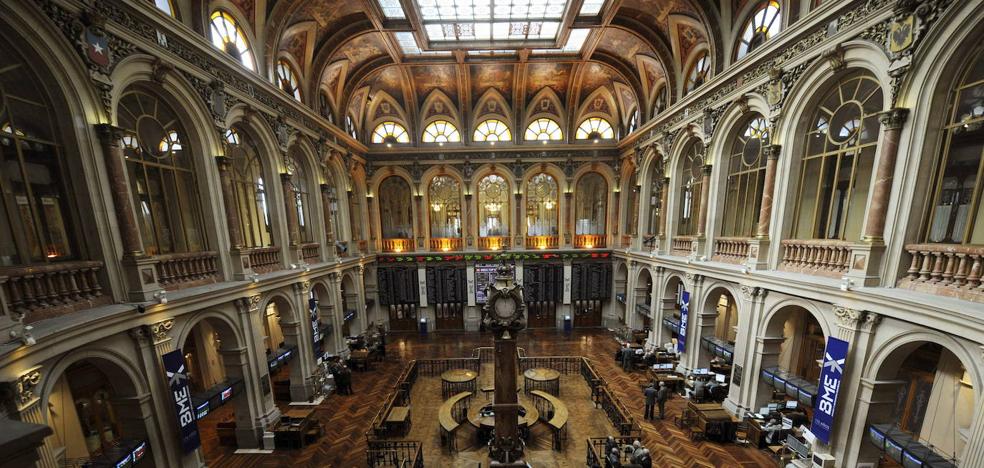Artificial intelligence (AI) tools such as the text bot ChatGPT are currently shaking up the high-tech industry. Google’s supremacy in web search is being seriously challenged for the first time by the new AI software. But the effects of the technological earthquake are not only being felt in Silicon Valley.
Artificial intelligence will also revolutionize the day-to-day work of many people outside of California’s tech hubs. This is the result of two studies examining the impact of the AI revolution on the world of work.
Jobs such as accountants are under particular threat
The first study comes from the creators of ChatGPT themselves: researchers from start-up OpenAI teamed up with academics from the University of Pennsylvania to find out which jobs ChatGPT has the greatest impact on. According to this, accountants are among the professions most affected by the possibilities of generative artificial intelligence. At least half of the accounting tasks could be done much faster with this technology.
According to the research, mathematicians, interpreters, programmers, writers and journalists should also be prepared for artificial intelligence to take over at least some of their previous tasks. Because while the AI systems currently often ‘hallucinate’ incorrect facts in their answers, they are already delivering remarkable results in tasks such as translation, classification, creative writing and computer code generation.
8 out of 10 US jobs can be partially automated
The researchers at OpenAI and the University of Pennsylvania assume that most workplaces will be changed in some way by the AI language models. About 80 percent of workers in the US have jobs where at least one task can be completed faster through generative AI. But there are also professions in which AI will only play a minor role: think of chefs, car mechanics and jobs in oil and gas production, but also in forestry and agriculture.
A research department of investment bank Goldman Sachs calculated in a study what this development could mean for the labor market in concrete terms. If the so-called generative AI maintains the promised skills, it could lead to “significant distortions in the labor market”. “Generative AI” refers to computer programs that can create new ideas, content or solutions rather than just following predefined rules or instructions.
Worldwide, approximately 300 million full-time jobs can be replaced
Goldman Sachs estimates that about two-thirds of today’s jobs are exposed to some level of AI automation. Generative AI could replace up to a quarter of current work. “If we extrapolate our estimates around the world, generative AI could expose the equivalent of 300 million full-time jobs to automation.”
Hinrich Schütze, director of the Center for Information and Speech Processing at the Ludwig Maximilian University of Munich (LMU), sees the development of generative AI as a revolution that is technologically comparable to the internet or smartphones. The AI systems are still a long way from really understanding the content of the topics: “The basic technology for the language patterns is simply to always predict the next word, very stupid, always the next word.”
Yet the consequences are already huge: “There will be big changes in how we write, when we write texts, how we program.” This also has major consequences for daily work. “A lot of jobs will disappear if it’s just a matter of writing summaries, collecting knowledge and condensing it.”
However, the AI expert from Munich warns against giving artificial intelligence too much scope when making decisions, for example in the judiciary, medicine, tax advice or asset management. The AI makes many statements with great persuasiveness, although the facts are often not correct: “People think that must be true if the model is so certain. But in reality, the model cannot assess its own safety. That is one of the big problems we have.”
Great hunger for energy will hold back AI for the time being
Potsdam computer science professor Christoph Meinel sees another obstacle to the widespread breakthrough of AI in the working world, because the systems require enormous computational capacities and thus also require enormous amounts of energy. “Many expectations of AI seem to me to be exaggerated and also unrealistic with regard to their energy consumption,” says the departing director of the Hasso Plattner Institute (HPI). The successful AI applications are based on so-called deep learning, or training with enormous amounts of data. “And they take up a lot of energy.” A broad introduction would therefore be disastrous for the climate and for achieving the climate objectives. “We first need to develop significantly more energy-efficient AI systems.”
Meinel sees a challenge not only in the high power requirement, but also in the field of data protection. “Anyone testing the latest artificial intelligence applications on the internet should be careful about disclosing their own sensitive data,” Meinel advises. Despite the hype, all those in charge should be aware that the providers’ AI models can be trained for free and made smart with their own queries and data. For example, anyone who uploads internal financial data to certain platforms in order to automatically create a presentation should be aware that this can also lead to the disclosure of trade secrets.
Source: Krone
I’m Ben Stock, a journalist and author at Today Times Live. I specialize in economic news and have been working in the news industry for over five years. My experience spans from local journalism to international business reporting. In my career I’ve had the opportunity to interview some of the world’s leading economists and financial experts, giving me an insight into global trends that is unique among journalists.



